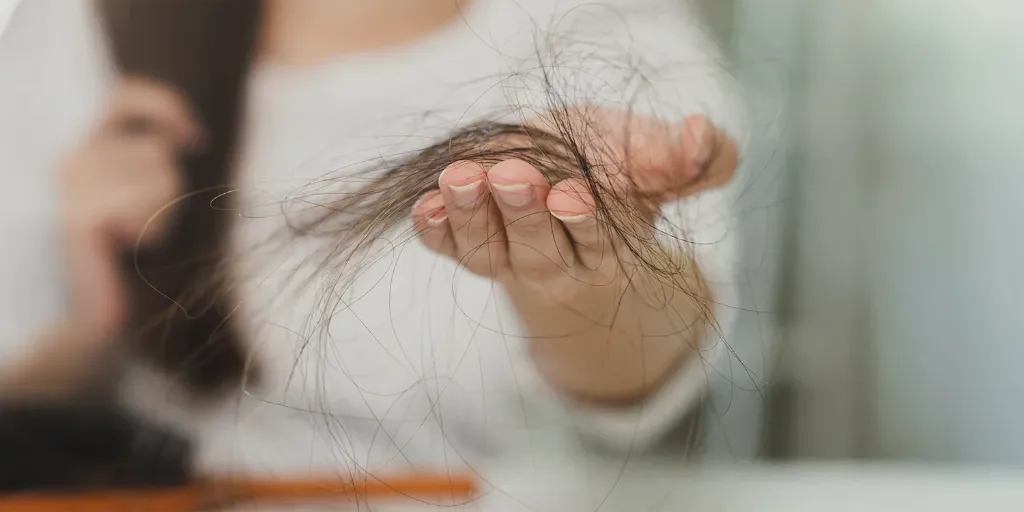How normal is hair loss: tips for maintaining good hair health
Women lose more hair than men
Are you suffering from unusual hair loss? Dermatologists explain the causes of excessive hair loss and what can be done to keep it in good condition..
Hair loss happens every day and everyone loses it. It is a normal function of the body, hair grows, then falls out and new hair appears in its place. But there’s a problem: only 5-10% of hair falls out at any given time, that’s only 50-100 hairs per day. Any additional items may indicate a problem that requires attention.

When should you worry about hair loss?
We have about 150,000 hairs, hair up, hair down, on our scalp. Hair growth occurs in a four-phase cycle. Typically, 90% of the hair on our head is in the growth or anagen phase. The last phase is the exogenous phase, during which the hair falls out of the scalp. In the exogenous phase it is normal to lose 50 to 100 hairs a day.
Signs of excessive hair loss
There is another problem: when we say that an average of 100 hairs a day is normal, it does not mean that it is good. For example, if you lose 30 hairs every day and suddenly start losing 75 hairs, that’s not normal, it’s excessive hair loss. Every person’s hair story is unique, don’t compare it to others. Common places to experience excessive hair loss:
- Your comb or brush
- Cushion
- Shower drain
- Bald spots on the scalp
- Reduction of the diameter of the horsetail.
- Becoming more and more bald
The best way to compare is to look at before and after photos and you’ll know if your hair indicates a potential problem and needs inspection.
Causes of excessive hair loss
The numerous causes of hair loss include:
- Increased stress levels. Increased cortisol levels inhibit hair growth and increase hair loss.
- Use of heat treatment
- Hormonal imbalance
- Tight hairstyles
- Lack of nutrients in the diet, which leads to less hair growth.
- Itching and scratching caused by dandruff and other inflammations of the scalp.
- Changes in the weather
- Hair colour
- Drugs
- Genetic alopecia
- Telogen effluvia
h2 When to consult a hair specialist?
Hair loss is a normal process, and as the body adapts to the trigger, hair loss usually decreases. Women lose more hair than men. To know if your condition is getting worse, try a gentle pull test and if more than 10 strands of hair reach your hand, it’s time to see a doctor.
Another thing to remember is that hair loss and hair loss, although used interchangeably, are different procedures. Hair loss can be temporary and may be due to thyroid, alopecia, etc.
What can you do to keep your hair healthy?
-Your diet plays an important role. If you think that hair is just dead protein cells, you are wrong. Its strength and durability depend on how you nourish your cells from the inside. You need a good diet rich in iron, zinc, proteins, vitamins and fatty acids.
- You can also ask your dermatologist about hair-specific vitamins.
- Look for ways to reduce stress. Invest your time in exercise, meditation and yoga, an interesting hobby, etc. to combat stress.
- If you notice hair loss, avoid combing and dyeing it until it thins.
- Keep your scalp free from dandruff and irritation.
- Use a good shampoo and conditioner to protect your hair from external damage.
- If you smoke, try to quit because toxins can damage DNA in hair follicles.
It is important to remember that, despite being the smallest organ in our body, hair is a very complex organ. He always needs care and food. Therefore, if you notice something unusual in your hair, consult a good trichologist to get to the bottom of the problem and get professional, personalized hair care.